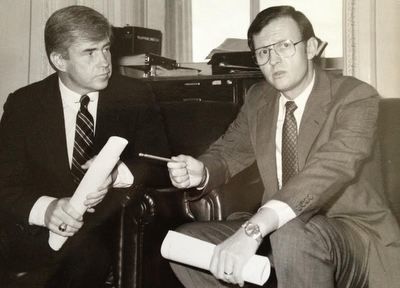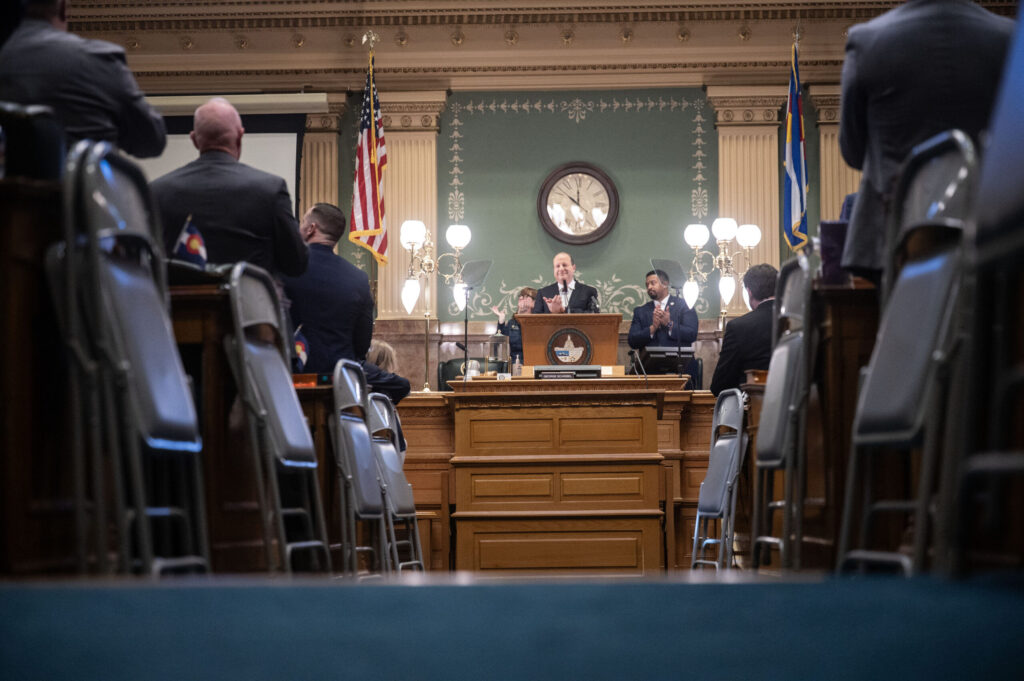BARTELS: Former Sen. Bill Armstrong: The guy who went from saying “no” to saying “maybe”


As Congress was fighting the debt ceiling in 2013, Dick Wadhams, Colorado’s political historian, passed on a New York Times story he knew I would enjoy: a 1983 feature on U.S. Sen. Bill Armstrong and his brand of conservatism.
“In one sense the Senator is a missionary, preaching the gospel of fiscal rectitude to the heathens on Capitol Hill. But, in another sense, he is a pragmatist who knows how to count votes and when to accept a deal,” the newspaper wrote.
“I’m relatively inflexible on principles,” the Colorado senator told the Times, “but I’m flexible on the details.”
I reprinted the articled in the Denver Post’s award-winning political blog, The Spot, and it’s worth rereading. Armstrong died Tuesday at the age of 79.
“Have I changed in my inner self?” he said in the 1983 Times article.
“The answer is yes. Some. I’m very comfortable now with people whose political views are very different from my own, and that was hard for me 10 years ago. Until you’ve had some of the rough edges knocked off, it’s awfully easy to be brash, and feel like you’ve got all the answers. But as you gain more experience, you realize nobody has all the answers, and that fosters a degree of intellectual humility.”
Armstrong went on to become president of Colorado Christian University in Lakewood, which created the Western Conservative Summit. Gravely ill after a five-year battle with cancer, the summit last week honored Armstrong with a 10-minute video. It included an appearance by Wadhams, who worked for Armstrong in the 1980s and later handled various GOP campaigns and serve as chairman of the Colorado Republican Party.
“I am going to miss him so much,” Wadhams said today.
Over the years, Armstrong’s name has popped up in political stories. I remember once asking Wadhams how somebody who lived in Aurora could also represent El Paso County in the U.S. House. I couldn’t remember his answer so I asked again today.
Wadhams explained that Armstrong represented the first 5th Congressional District, created after the 1970 census. Arapahoe was the most populous county in the district, followed by El Paso County. The district also included some Eastern Plains counties and Douglas County, which had “maybe 20,000 people,” Wadhams said. (Actually the population then was 8,407 – today it’s 322,387. Douglas now is divided between the 4th and 6th CDs, most of Arapahoe is in the 6th and El Paso County, the state’s most populous county, is the heart of the 5th District.)
In 2008 when I was asking politicos for their favorite caucus moments for a story for the Rocky Mountain News, then Denver City Councilwoman Jeanne Faatz told me about her 1978 race for the state House in southwest Denver.
“I wanted to meet as many potential delegates as I could. I attended my own caucus and dropped in on seven more. Talk about a hectic night!” she said.
“Excellent turnout that year, but my race wasn’t the drawing card. Former astronaut Jack Swigert and U.S. Rep. Bill Armstrong were running for the GOP nomination to the U.S. Senate. Later, each campaigned door-to-door with me in House District 1. Terrific men. Great fun.”
Two years earlier, Armstrong made the news when a robo-call he taped urging Coloradans to vote against a 2006 ballot measure mistakenly was sent out at 3:50 a.m. on a Sunday. “People were hopping mad, and I don’t blame them,” he said.
Here’s more from the Times article, including a comment from a Democratic lawmaker who went on to serve as President Obama’s head of the CIA and Department of Defense.
“Restlessness is also a part of the man’s makeup. Born in Nebraska, he went south to college, at Tulane in New Orleans, and finally settled in the West, where he could pursue his free-market ideas in real life, making his fortune in the radio industry and winning a seat in the State Legislature by the time he was 25 years old.
“Some Capitol Hill observers detect certain changes in Senator Armstrong’s recent behavior. At times negotiation has replaced confrontation as his tactic of choice, and he is increasingly interested in writing laws, not just blocking them.
“‘From what I can tell, he’s one of those conservative members who’s trying to play a constructive role,'” said Representative Leon E. Panetta, a California Democrat who faces Senator Armstrong across the table in budget negotiations. “Instead of saying no all the time, he’s now saying maybe.’
To read more posts by Lynn Bartels, visit her official blog at the Colorado Secretary of State website.














